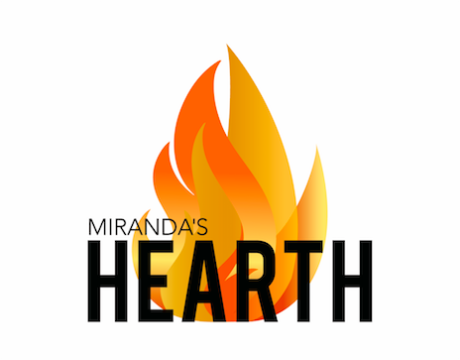The Stories behind #BlackLivesMatter
As I was preparing today’s e-blast my mind was full of my upcoming projects and events and deadlines. But as I began to put it together, all I could think about were the riots in Baltimore.
I spent the past two days home sick, completely unaware of what was happening, curled up in bed reading Americanah by Chimamanda Ngozi Adichie. It is a beautifully written and bluntly honest window into a world of which I have no experience. As soon as I finished it, I turned back to her TEDtalk, The Danger of a Single Story, which I first saw while in graduate school:
“Power is the ability not just to tell the story of another person,” says Adichie, “but to make it the definitive story of that person. The Palestinian poet Mourid Barghouti writes that if you want to dispossess a people, the simplest way to do it is to tell their story and to start with, “secondly.” Start the story with the arrows of the Native Americans, and not with the arrival of the British, and you have an entirely different story. Start the story with the failure of the African state, and not with the colonial creation of the African state, and you have an entirely different story.”
I clicked through the videos and next landed on Clint Smith’s talk, “How to raise a black son in America.” A local poet and educator, Smith echoed Adichie’s eloquence and spoke directly to the current situation in the states:
“So when we say that #black lives matter, it’s not because others don’t, it’s simply because we must affirm that we are worthy of existing without fear, when so many things tell us we are not. I want to live in a world where my son will not be presumed guilty the moment he is born, where a toy in his hand isn’t mistaken for anything other than a toy.”
It was with the words of these two artists in mind that I finally turned back to social media and found out what is happening. I have not been listening to the stories of the past year as well as I should have been, let alone to the ongoing stories from previous years. Flashes from Ferguson, New York City, and Ohio made their way onto and across my computer screen barely digested. What was I supposed to do? How could I contribute?
The racial tensions in America, so entrenched, so convoluted, seem insurmountable. What can one person do to help?
Each time this question appears in my mind, I think of the quote from Martin Luther King, Jr, “In the end, we will remember not the words of our enemies but the silence of our friends,” and guilt sinks heavily into my stomach. I have the privilege of turning a blind eye, of compressing a broiling battle into a single story, and by exercising this privilege I am part of the problem.
We have to start somewhere. We have to learn something. There are so many stories fighting to be heard and the least we can do is listen, particularly to stories that are outside our own experience. Ngozi and Smith, both people of color, shared stories that I as a white woman needed to hear, that I need to continue to hear.
We must watch, read, learn, educate ourselves. We are the only ones responsible for our own education. I don’t know the solution, I don’t know how to help, but I do know that I have to stop hiding behind my ignorance and start to try.
Here is a short list of what I’ve been reading, please send me more so that we can start to compile stories to learn from:
- Orioles Executive on Baltimore Unrest: It’s Inequality, Stupid
- Non-Violence as Compliance
- In Support of Baltimore
Books:
- Witnessing Whiteness: The need to talk about race and how to do it by Shelly Tolchuk
- Waking up White and finding myself in the story of race by Debby Irving
- Why Are All The Black Kids Sitting Alone in the Cafeteria: and other conversations about race by Beverly Daniel Tatum
- The New Jim Crow
Projects:
The Pamoja Project: “The Pamoja Project is a series of three short documentary films that tell the incredible story of three Tanzanian women working in the areas of education, microfinance, and health. In Swahili the world “pamoja” means together. Together alongside the women in these stories, we will share their incredible journey of hope, humanity, and empowerment as they work tirelessly to create real change for the people of Tanzania.”
Additional reading from Hearth Member, Jessica Atcheson courtesy of a growing community list of resources for white people confronting racism:
Organizations/Groups:
Showing Up for Racial Justice
Boston Knapsack Anti-Racism Group
Boston Racial Justice Brunch
Articles to read (many geared to white allies):
Article by Brit Bennett, “I Don’t Know What to Do with Good White People”
Interview with Judith Butler, “What’s Wrong with ‘All Lives Matter’?”
“I’m Sick of the Unintentional Ignorance of White People,” by Priscilla Ward
“5 Valuable Ways to Use Your White Privilege to Fight Anti-Black Racism,” by Wiley Reading
Boston White Racial Justice People Activate Notes
Dear white people: your discomfort is progress. Keep talking about Ferguson–and beyond
Dear White Allies, Stop Unfriending Other White People Over Ferguson
Resources for Aspiring White Allies
Dear White People: Ferguson Protests Are a Wake Not a Pep Rally
Explaining White Privilege to a Broke White Person
At Eric Garner Protests, Some White Activists Are Being Called Out for Their Behavior
Unequal Treatment of 2 Protesters in Eric Garner Case, One White and One Black
White Folks: Act Up Accountably
Videos:
The Definition of Privilege
I Can’t Breathe
5 Tips for Being an Ally
Is Ferguson like Mockingjay?
What Is Systemic Racism video series
